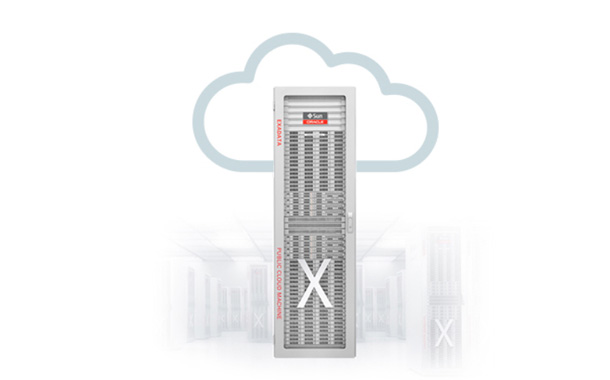Addresses data sovereignty, security, and performance concerns that prevent some enterprise workloads from moving to the public cloud.
Building on the success of Oracle’s Exadata Cloud@Customer service over the last three years, Oracle offers Oracle Autonomous Database on Exadata Cloud@Customer. This new offering combines the latest Oracle Database with the fastest Oracle Database platform—Exadata—delivered as a cloud service in customer datacenters. It eliminates database management and capital expenditures while enabling pay-per-use and elastic consumption of database cloud resources. Now, Autonomous Database is available to run in customer data centers both as a standalone offering and as part of Oracle Dedicated Region Cloud@Customer.
Oracle Autonomous Database on Exadata Cloud@Customer is the simplest and fastest transition to a cloud model with typical deployments taking less than a week. Existing applications in a datacenter can simply connect and run without requiring any application changes — while data never leaves the customer’s datacenter. This is ideal for enterprises that find it challenging to move their mission-critical database workloads to the public cloud due to data sovereignty and regulatory requirements, security and performance concerns, or because their on-premises applications and databases are tightly coupled.
“Exadata Cloud@Customer has been successfully deployed at hundreds of customers, including large financial services companies, telecoms, healthcare providers, insurers, and pharmaceutical companies worldwide to modernize their infrastructure and lower costs by up to 50 percent,” said Juan Loaiza, Executive Vice President, Mission-Critical Database Technologies, Oracle. “We are now bringing Oracle Autonomous Database to customer datacenters—freeing DBAs and developers from mundane maintenance tasks and enabling them to innovate and create more business value.”
Oracle Autonomous Database on Exadata Cloud@Customer enables organizations to move to an environment where everything is automated and managed by Oracle. Autonomous operations include: database provisioning, tuning, clustering, disaster protection, elastic scaling, securing and patching, which eliminates manual processes and human error while reducing costs and increasing performance, security and availability. The serverless architecture automatically scales to match changing workloads, providing true pay-per-use.
“Oracle Autonomous Database on Exadata Cloud@Customer combines the game changing capabilities of the revolutionary Exadata X8M platform with Oracle’s most advanced machine-learning-powered database and its second-generation cloud control plane for a true enterprise-grade database cloud experience on-premises,” said Carl Olofson, Research Vice President, Data Management Software, IDC. “Every business has a set of ISV and home grown applications that they depend on to run all aspects of their business from finance to manufacturing, HR, orders, procurement, and operations. For companies serious about running these types of critical Oracle-based applications in an on-premises enterprise database cloud, Oracle Autonomous Database on Exadata Cloud@Customer is currently the most advanced offering in the market today.”
Customers can leverage Oracle Autonomous Database on Exadata Cloud@Customer to consolidate thousands of databases and run the converged, open Oracle Database for multiple data types and workloads including Machine Learning, JSON, Graph, spatial, IOT and In-Memory, instead of deploying fragmented special-purpose databases. With Oracle Autonomous Database on Oracle Exadata Cloud@Customer, organizations can work with up to 7x larger databases, achieve greater database consolidation, and improve performance with up to 12x more SQL IOPS, 10x more SQL throughput, and 98 percent lower SQL latency than RDS on AWS Outposts. Oracle Autonomous Database on Exadata Cloud@Customer reduces customers’ infrastructure and database management by up to 90 percent because they only have to focus on the schemas and data inside their databases, not on running the underlying database infrastructure.
In addition to the new Cloud@Customer offerings, Oracle continues to enhance the capabilities of the Autonomous Database. Oracle today announced the certification of Oracle’s Siebel, PeopleSoft, and JD Edwards running on Oracle Autonomous Database. By using Autonomous Database, Oracle’s Siebel, PeopleSoft, and JD Edwards customers will lower their costs while improving security, performance, and availability. The company also announced Oracle Autonomous Data Guard which delivers an autonomously managed high availability and disaster recovery solution protecting against database and site failures. Oracle Autonomous Data Guard provides near zero data loss (RPO) and recovery time (RTO) objectives in the face of catastrophic failures.
New Exadata Cloud@Customer Enhancements
In addition to the Autonomous Database, Oracle is announcing the following Exadata Cloud@Customer enhancements:
- Oracle Exadata Database Machine X8M Technology, which combines Intel® Optane™ DC Persistent Memory and 100 gigabit remote direct memory access (RDMA) over Converged Ethernet (RoCE) to remove storage bottlenecks and dramatically increase performance for the most demanding workloads such as Online Transaction Processing (OLTP), IoT, fraud detection, and high frequency trading. Direct database access to shared persistent memory increases peak performance to 12 million SQL read IOPS, 2.5X greater than the prior generation offering powered by Exadata Database Machine X8. Additionally, Exadata X8M dramatically reduces the latency of critical database IOs by enabling remote IO latencies below 19 microseconds—more than 10X faster than the prior generation offering. These ultra-low latencies are achieved even for workloads requiring millions of IOs per second.
- Multiple VM Clusters per Exadata Rack, which enables organizations to share an Exadata system for production, DR and dev/test and provide isolation across departments and use cases.
- PCI-DSS Certification: Exadata Cloud@Customer now supports and meets Payment Card Industry Data Security Standard requirements and can be implemented as part of a highly secure financial processing environment.


